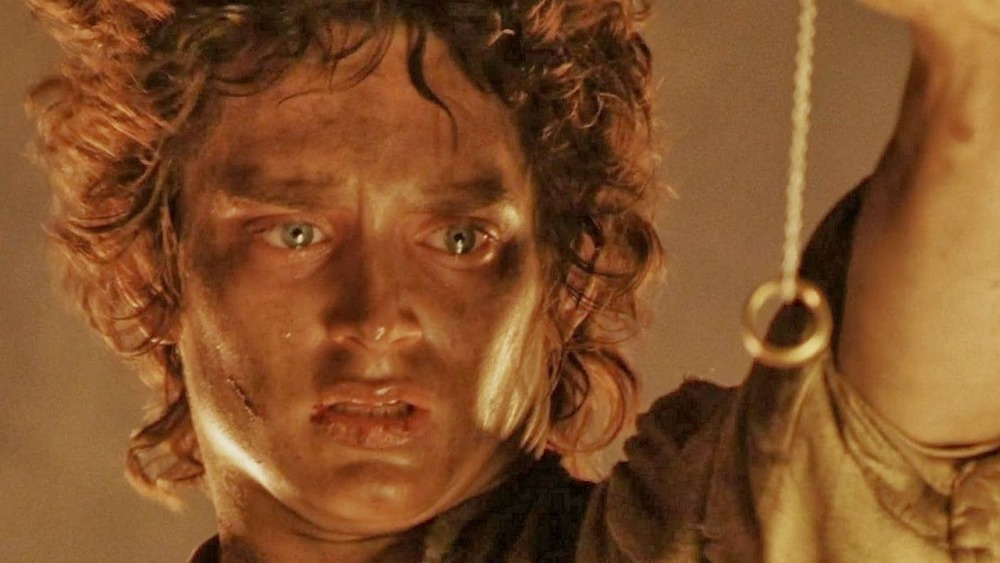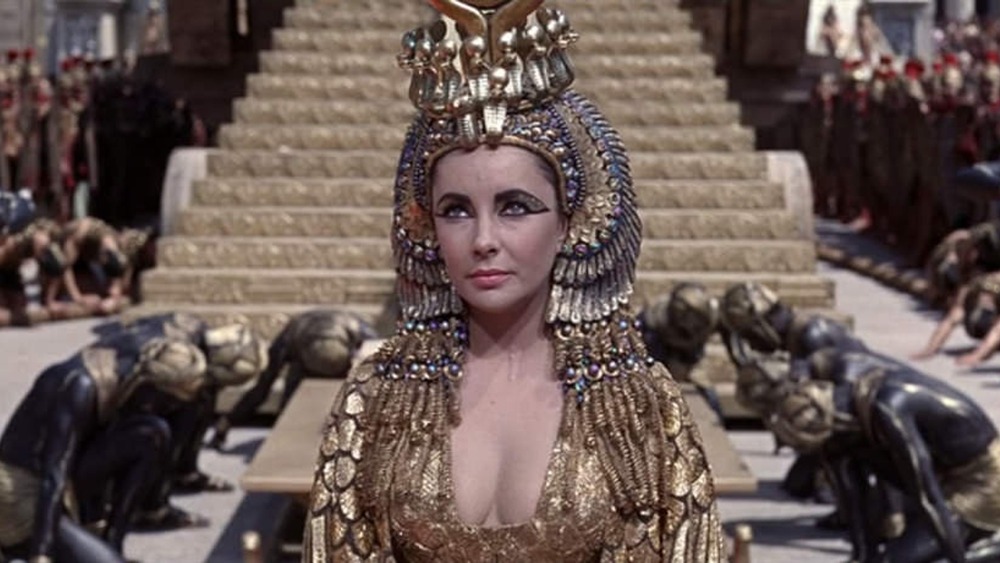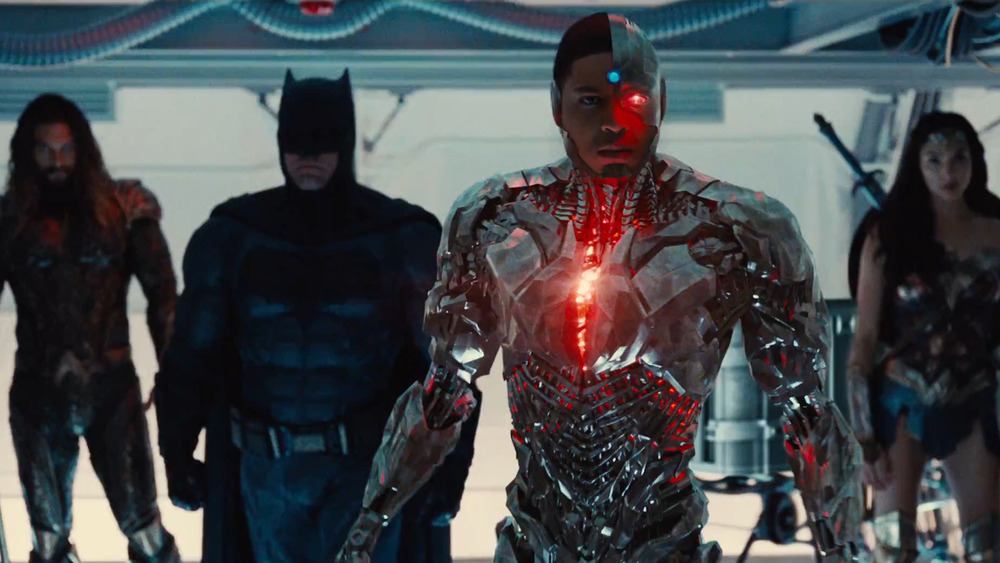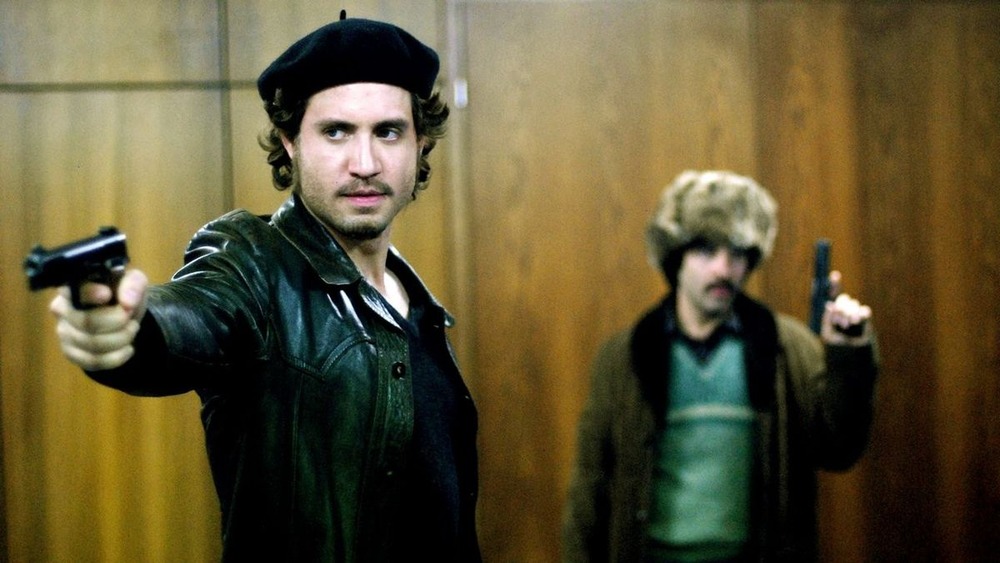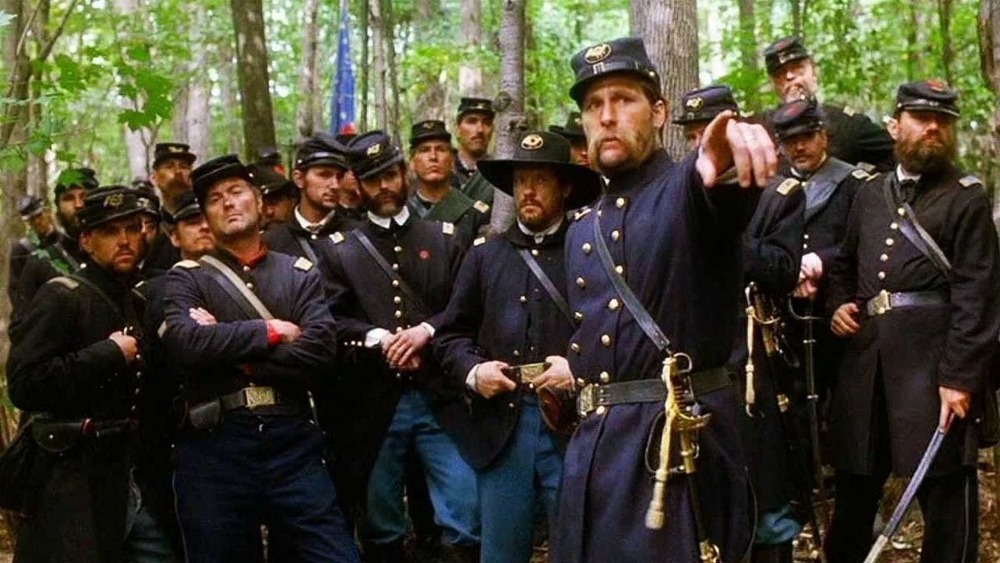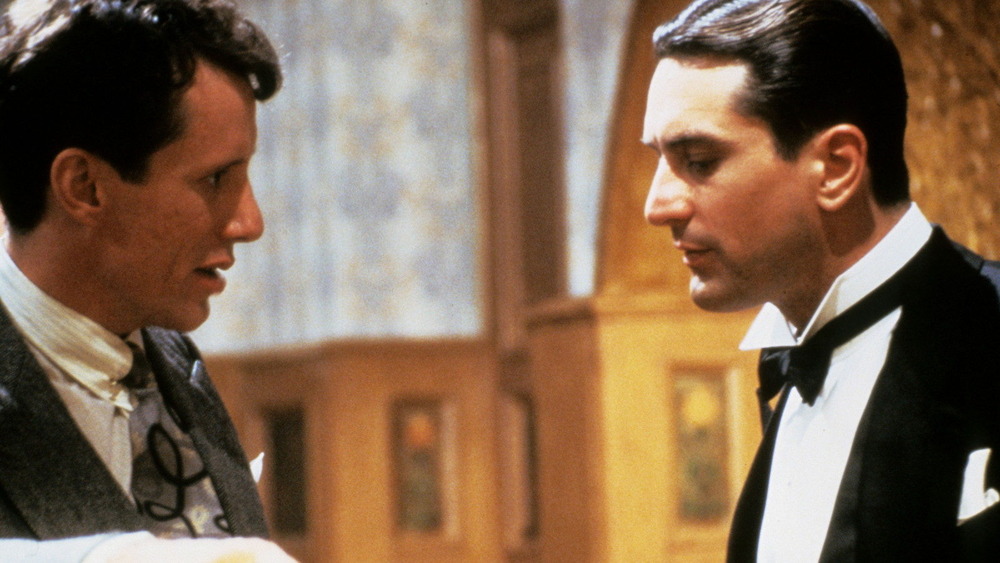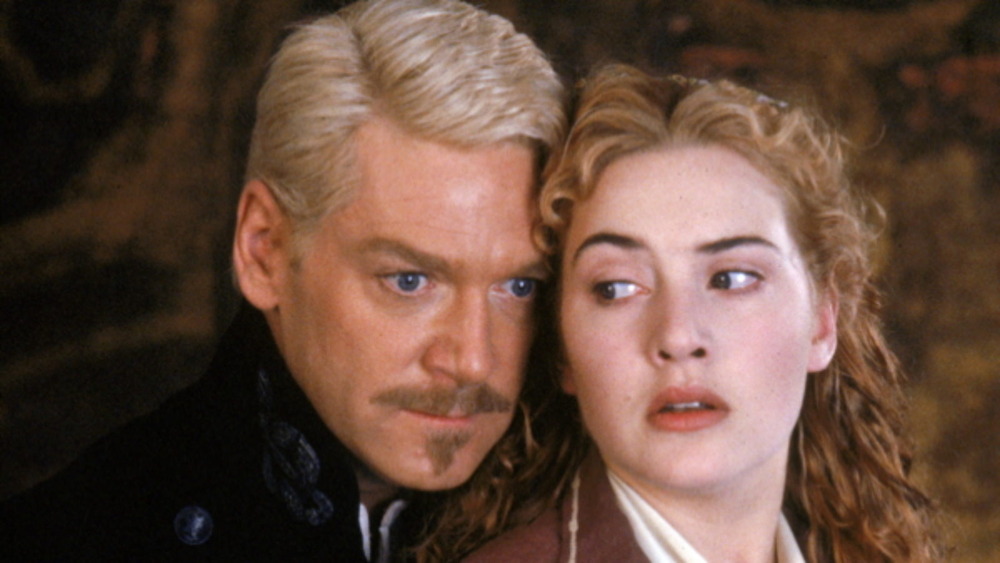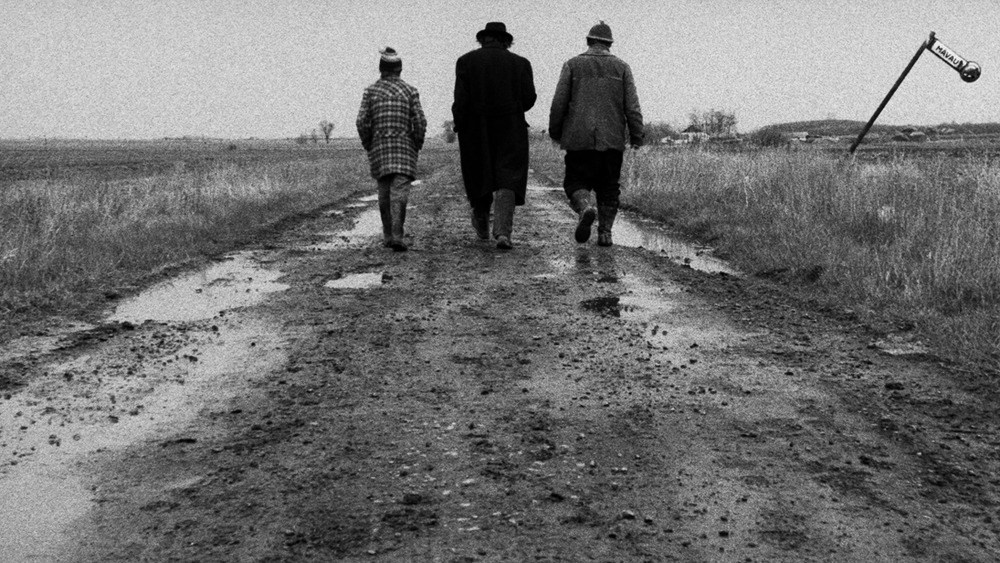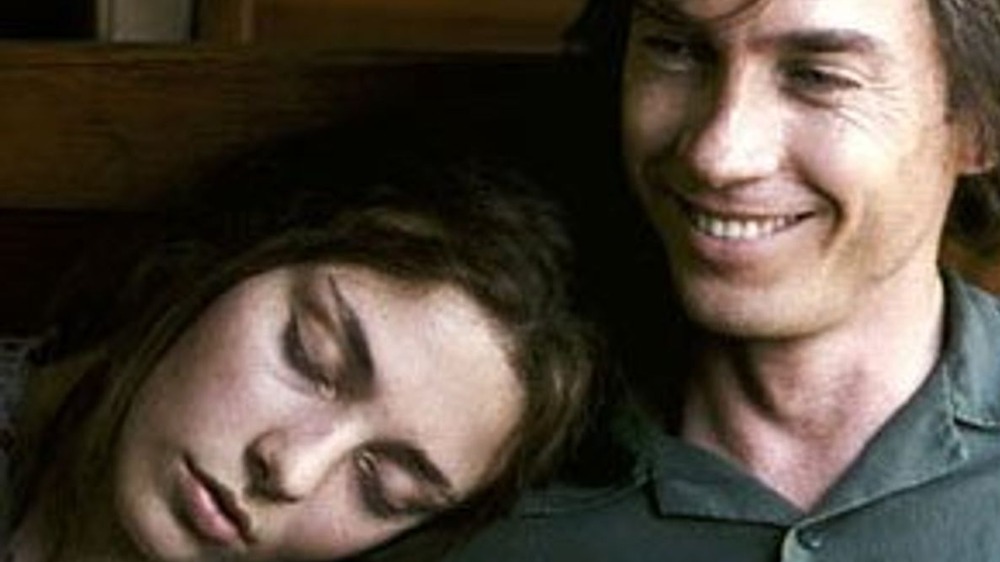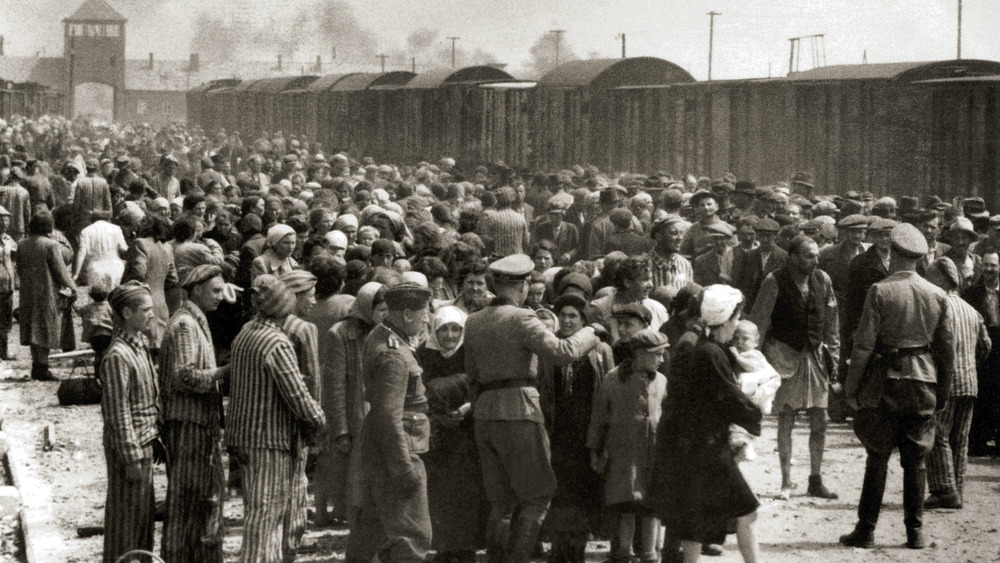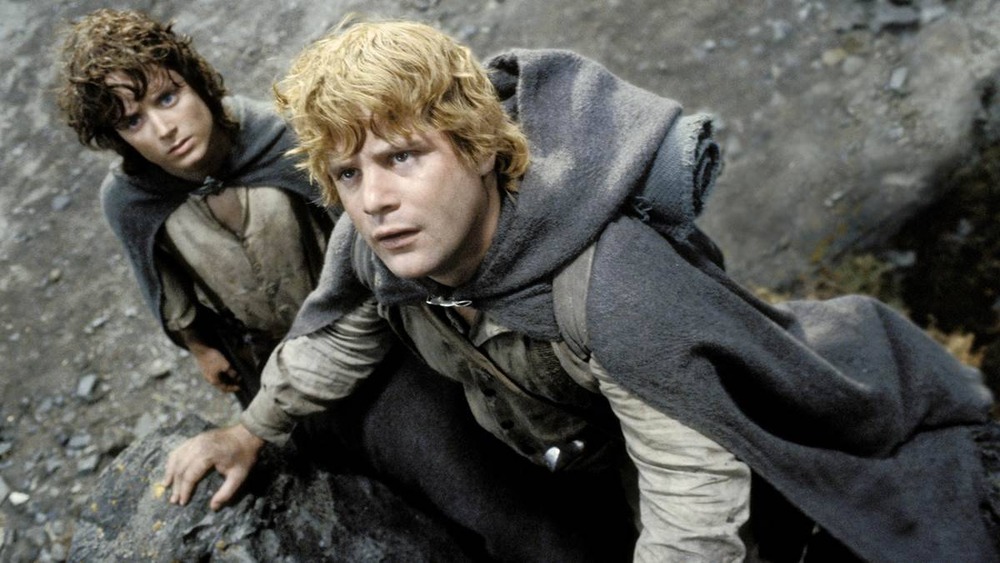The Best Movies Over 4 Hours Long
If you click a link and buy a product or service from a merchant, we may be paid an affiliate commission.
Someone figured out long ago that audiences can only sit for a movie for around two, maybe three hours, before they and their bladders begin to lose patience. So if a movie demands more than that, or even twice as long as that, it'd better be worth investing an entire afternoon to see, when you account for bathroom and snack breaks.
Luckily, we've found several four-hour-plus behemoths that are worth every one of the 240 or more minutes you'll spend watching them. Many were originally TV miniseries. Some were released in parts before being reassembled into a single movie. Some are merely the longest versions of movies with multiple different cuts. Most are historical epics of one degree or another, examining major world events through the eyes of either famous figures or fictional characters who simply try to survive as the world shifts and changes, often violently, around them. Some others are fantasy masterpieces, superhero team-ups, or hauntingly shot documentaries. The only thing they have in common is that they're all fantastic. So block out a few weeks on your calendar, and get ready to watch the best films ever made that run over four hours.
Cleopatra is overstuffed but fascinating
This 1963 film about the titular Egyptian Queen begins shortly after Julius Caesar wins his civil war. He arrives in Egypt and falls in love with Cleopatra, daughter of the Pharaoh, which kicks off a chain reaction of events that includes her being crowned Queen of Egypt, having a child with Caesar (whose plans to crown himself king end with his assassination on the Ides of March), and Rome being split into pieces amongst Caesar's various successors. She's initially angered that Caesarion, her and Caesar's son, was not chosen to succeed him. However, she gets another chance to interfere with Roman affairs when Mark Antony approaches and asks for supplies to wage yet another civil war against Octavian (soon to be known by his more popular name, Caesar Augustus). Lots of backstabbings and battles later, Antony and Cleopatra's forces have been defeated by Octavian, who forces Cleopatra to accept terms that include her not hurting herself. After signing them, she kills herself anyway.
It's not often that we say a four-hour film might be too short, but that may well be the case with Cleopatra. The problem with this film is that, in case you haven't already picked up on this, virtually every chapter of the real Cleopatra's life could fill out an entire miniseries, and director Joseph L. Mankiewicz tried to stuff most of it in. We have to give him credit for at least trying.
Zack Snyder's Justice League was worth the wait
If you were skeptical that the so-called, long-awaited "Snyder cut" of 2017's Justice League would live up to the insane levels of hype it generated, you weren't alone. Snyder's filmography is hit or miss, and although it was sprinkled with occasional bright spots like Wonder Woman and Shazam, the DC Extended Universe has been a long disappointment that failed spectacularly in its attempt to compete with the Marvel Cinematic Universe. That competition was such a massacre that little-known Marvel properties like Guardians of the Galaxy were stomping all over actual Superman movies. This should not be, but it was. Therefore, all signs were pointing to a "Snyder cut" that was only superficially different from, but not better than, the so-so theatrical release.
We were wrong.
Zack Snyder's Justice League isn't Dark Knight levels of brilliant by any means, but it's a truly worthy superhero team-up outing nonetheless, and a significant improvement over the original version. It's also a triumph for Snyder and his fans, who fought tooth and nail to get this version of the film released after years of being the butt of superhero movie jokes and putting up with destructive creative meddling from the studio. We won't spoil what happens in this movie, but we can implore you to check it out on Max.
Carlos is a masterpiece about an evil man
Each of the three parts of this 2010 French-German film, originally a TV miniseries, is both longer than the one before it and the length of an entire movie. The story follows the exploits of Ilich Ramírez Sánchez (Edgar Ramirez), otherwise known as Carlos the Jackal: a real-life political terrorist who committed multiple violent acts in Europe on behalf of the Popular Front for the Liberation of Palestine (PFLP).
Part one shows Sánchez fighting with Middle East militants before moving to London and then Paris, murdering people and blowing things up as he goes. It ends with him adopting the name Carlos, and escaping capture by shooting three French police officers. Part two focuses on a single, real-life terrorist attack staged by Carlos, in which he kidnapped multiple OPEC officials, but then released some after being unable to find countries in which he could seek asylum. It ends with him becoming an agent for hire for multiple countries, and working within the Soviet sphere of influence. Part three, the longest, begins with Carlos' continuing operations in Eastern Europe, exploiting the geopolitical instability in the region to traffic arms and foster relations between various clients and sponsor states, followed by his eventual decline in influence and 1994 arrest by the French for earlier crimes. All in all, Carlos manages to rarely drop any of the various plotlines it juggles.
Gettysburg is better than the sum of its parts
Gettysburg, the 4.5-hour-long made-for-TV epic about the titular Civil War battle, shouldn't work half as well as it does. The decision to cast reenactors with their own uniforms and gear sounds like a no-brainer, until you realize that the types of reenactors who can afford their own uniforms and gear tend to be pudgy middle-aged men instead of rail-skinny teens who made up the bulk of the actual armies being depicted. On top of that, the action is bloodless, the cinematography felt unimaginative and dated even at the time of the film's 1993 release, and you can very nearly see the strings holding up the goofy fake beards.
And yet, the movie manages to be worth multiple viewings despite its flaws and runtime. Randy Edelman's score is one of the most underrated of the 90s, and the cast is stellar. Jeff Daniels gives one of his best performances as Colonel Chamberlain, whose regiment is forced to defend Little Round Top against seemingly impossible odds. Tom Berenger does a winning turn as Longstreet, who fails to get Martin Sheen's Robert E. Lee to see reason before bungling the Confederates into disaster. Sam Elliot anchors the first act as General Buford, and Richard Jordan gives a haunting performance as Lo Armistead, who has to lead his brigade into battle against the troops of his dear friend, Union general Winfield Hancock. In the end, Gettysburg shines.
Once Upon A Time In America was almost ruined by studio meddling
In this epic 1984 crime movie, the final entry in Italian director Sergio Leone's Once Upon A Time trilogy (which includes 1968's Once Upon A Time in the West and 1971's Duck, You Sucker!), David "Noodles" Aaronson and Maximilian "Max" Bercovicz (Robert De Niro and James Woods, respectively), lead a group of youngsters from the slums of Manhattan's Jewish ghetto to prominence in the world of organized crime in 1918. It has all the mainstays of classic gangster cinema: extreme violence, thick New York accents, drug use, unscrupulous characters, and Joe Pesci.
Unfortunately for its legacy (it's hardly De Niro's most talked about film, as we're sure you've noticed), studio meddling undermined its critical and commercial success. The Ladd Company, who produced and distributed the movie, was spooked by the initial six-hour, two-part release Leone had proposed, and trimmed it to 139 minutes without his consent or involvement. It went about as well as things usually do when non-creative types decide to overrule the artist. Critics and audiences alike, especially those who had seen the original "European cut," disliked the shortened release and voted with their wallets. In the years since, however, the film has gained significant love from gangster flick aficionados and film critics alike, and has become something of a cautionary tale about unwelcome studio interference.
Kenneth Branagh's Hamlet: as good as your teachers said it was
You probably remember watching Kenneth Branagh's Shakespeare movies in school, and may not have much of a desire to revisit them because of that. You should rethink things if that's the case, because your teachers were right. Branagh's movies, particularly 1996's Hamlet, aren't just great depictions of Shakespeare's works, but genuinely wonderful films.
What's even better is the fact that Hamlet isn't just inspired by Shakespeare's seminal play of the same name; it's a word for word adaptation of it.
Every member of the cast shines. Branagh's turn as Prince Hamlet is obviously the center of the movie, but Derek Jacobi's performance as King Claudius, murderer of Hamlet's father and primary antagonist of the story, is also worth seeing. The same can be said for Julie Christie, Richard Briers, Nicholas Farrell, and plenty of others. Notably, a young, just barely pre-Titanic Kate Winslet plays Ophelia. Similar to her character in that hit film the following year, this one grows despondent because of troubles with men — specifically, Prince Hamlet's unwillingness to marry her.
Overall, Hamlet focuses more on the royal politics at the center of the story than previous iterations, but still managed to flesh out its characters in believable ways without losing any of that Shakespearean quality. It is undoubtedly the superior film adaptation of that play.
Satantango is arguably the best Hungarian film ever made
The long running artistic collaboration between Hungarians Béla Tarr, a film director, and novelist László Krasznahorkai, who often provided stories for the former's movies, came to a head in 1994 with Sátántango. This seven-hour, 12-chapter behemoth of a film, often considered one of Hungary's best, follows the exploits of the slick-tongued Irimiás (Mihály Vig), who arrives at a small farming commune in the final days of Soviet-style European communism, plays off the desperation of the locals, promises them good fortune in a new land, and makes off with all their money.
We couldn't begin to go into all the characters and events that make up this movie, and it would be a disservice to you to even try. All you need to know, other than the fact that it's a must-watch (albeit a time-consuming one), is that it's widely considered one of the best films ever made, boasting a rare 100% on Rotten Tomatoes and being voted the 36th greatest film of all time in a 2012 Sight & Sound poll.
The Best of Youth is a powerful examination of 20th century Italy
This giant 2003 Italian historical family drama follows Nicola and Matteo Carati, two brothers of opposite temperament from Rome who navigate the difficulties of life in post-World War II Italy. After a flood in Florence, Nicola marries Giulia, a pianist and political extremist, before entering into the field of psychiatry. Meanwhile, Matteo joins up with the police and tries to right society's wrongs with brute force, before meeting and falling in love with Mirella, a starry-eyed photographer. These four characters will survive floods, violence, and extreme political turbulence as they discover truths about themselves and each other.
Clearly, it's far from being a tight 90-minute movie. Like many other super-long films, director Marco Tullio Giordana originally wanted this one to be a TV miniseries. It instead saw theatrical release at the 2003 Cannes Festival, where critics overlooked its punishing runtime to give it widespread acclaim and the coveted Prize Un Certain Regard.
Shoah is the essential Holocaust documentary
If there's a Holocaust movie that is for the faint of heart, it's probably not worth watching. Few of them are as gut-wrenching, haunting, terrifying, enraging, and unforgettable as Shoah, French director Claude Lanzmann's nine-hour documentary. In it, he examines everything, including the Warsaw Ghetto, a tiny district where that city's Jewish population was corralled by occupiers before being shipped off to concentration camps; the transport trains that took them to those camps, in which inmates were packed so tight the dead couldn't even drop to the ground when they starved en route; the horrors of the labor and extermination camps themselves, in which millions of Jews, captured Soviets, Roma, and other so-called "undesirables" were starved, worked, beaten, or gassed to death; the survivors and administrators of those camps, and the civilians who lived nearby.
Just as maddening, Shoah reveals, is the fact that the crime continues in the form of a cover-up. That's not to say the film explores Holocaust denial, which is beyond its scope, but that even the most guilty people interviewed still refuse to take responsibility. According to them, the orders that brought about the most infamous crime in history were always being given and carried out by others, while they pushed meaningless buttons in a nearby office. How convenient for their souls. The layers of evil Lanzmann unravels makes this an uncomfortable watch, to say the least, but it's an essential one.
The extended edition of The Return of the King is movie magic
As if its 11 Oscar wins weren't enough proof, 2003's The Lord of the Rings: The Return of the King is a bona fide masterpiece. It's one of those movies where each rewatch makes you fall in love with a different scene, and where even the smallest sequences are gorgeously shot, performed, and scored. There's the tragic beauty of the fall of Osgiliath, when Faramir leads his remaining men on a chaotic retreat back to Minas Tirith. There's Pippin's song, performed for a feasting Denethor as Faramir rides back to Osgiliath on a doomed mission to please his father. There's the lighting of the beacons, Gandalf telling Pippin about the "white shores" we visit when we die, Eowyn slaying the Witch King, Sam telling Frodo that he can't carry the ring, but can carry him, Aragorn's Black Gate speech and, later, his coronation. There's the ride of the Rohirrim, which might just be the most fist-pumping, beautiful, edge-of-your-seat charge ever put to film.
The extended edition adds even more to this almost overstuffed epic, including the death of Saruman, which is a scene so good that only a movie as masterfully made as The Return of the King could afford to leave it out of the theatrical release. The emotional hits simply don't stop coming, and you don't want them to. Even after four hours and twice as many endings.
